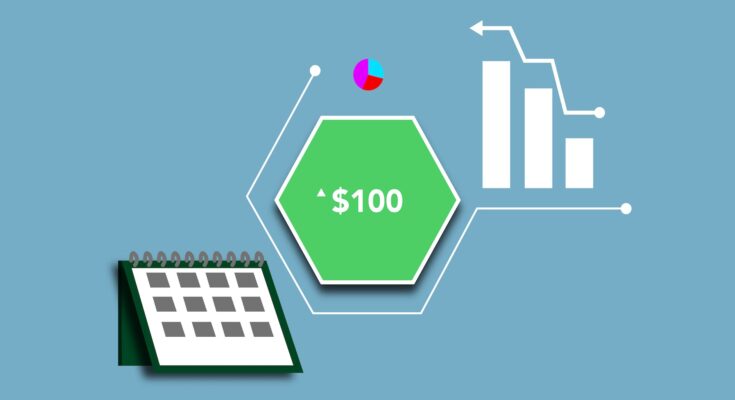In the world of trading, access to sufficient capital is often a crucial factor in determining one’s success. Limited capital can restrict the size of trades and potential profits, making it challenging for traders to achieve their financial goals. This is where funded trading programs come into play. Funded trading offers aspiring traders the opportunity to trade with substantial capital provided by funding companies or organizations, enabling them to unlock their full potential in the financial markets.
Understanding Funded Trading
Funded trading, also known as proprietary trading or remote trading, is a concept where traders receive capital from external sources to engage in trading activities. These external sources, known as funding programs, act as backers or investors, providing traders with the necessary capital to trade with larger positions and potentially earn higher profits. In return, the funding program typically receives a portion of the profits generated by the trader.
The core principle behind funded trading is to identify and support talented traders who demonstrate skill, discipline, and the ability to manage risk effectively. By providing traders with access to additional capital, funded trading programs aim to create a mutually beneficial partnership where both the trader and the funding program can profit from successful trading outcomes.
How Funded Trading Works
Funded trading programs operate through a structured process that involves evaluating, selecting, and funding traders. The specific steps may vary between different programs, but the general framework is as follows:
- Application and Evaluation: Traders interested in participating in a funded trading program submit an application, which typically includes information about their trading experience, track record, and trading strategy. The funding program evaluates these applications to assess the trader’s potential and suitability for funding.
- Program Requirements: Funding programs often have specific criteria and requirements that traders must meet. These may include minimum trading experience, performance targets, risk management rules, and adherence to trading guidelines set by the program.
- Evaluation Period: Upon meeting the initial criteria, traders may enter an evaluation period where they trade a simulated or live account provided by the funding program. This evaluation period allows the program to assess the trader’s trading skills, consistency, and ability to manage risk effectively.
- Funding: Successful traders who demonstrate their abilities during the evaluation period may receive funding from the program. The funding amount provided can vary depending on factors such as the trader’s performance, experience, and the program’s terms. Traders then trade with the funded capital while following the program’s guidelines and profit-sharing structure.
- Profit Sharing: As traders generate profits from their funded trading activities, a predetermined portion of those profits is shared between the trader and the funding program. The profit-sharing arrangement is typically outlined in the program’s terms and varies depending on factors such as the trader’s performance level and the specific program.
- Risk Management and Accountability: Traders participating in funded trading programs are expected to adhere to strict risk management guidelines to protect the capital provided by the program. They are accountable for managing risk effectively, following the program’s rules, and demonstrating consistent and disciplined trading behavior.
Benefits of Funded Trading
Funded trading offers several benefits for aspiring traders:
1. Access to Increased Capital: Funded traders can access significantly larger amounts of trading capital compared to what they may have available on their own. This increased buying power allows them to trade larger positions and potentially amplify their profits.
2. Reduced Personal Risk: By trading with funded capital, traders can minimize their personal financial risk. If a trade results in a loss, it is the funding program’s capital at stake rather than the trader’s personal funds.
3. Learning and Growth Opportunities: Funded trading programs often provide educational resources, mentorship, and feedback to help traders improve their skills and become more successful. Traders can learn from experienced professionals and gain valuable insights into the intricacies of the financial markets.
4. Profit-Sharing Structure: The profit-sharing arrangement between traders and funding programs allows traders to retain a portion of the profits they generate. This incentivizes traders to strive for consistent profitability and aligns their interests with the funding program.
5. Networking and Industry Connections: Participating in funded trading programs can provide traders with networking opportunities, exposure to industry professionals, and potential connections that can benefit their trading career in the long run.
Conclusion
Funded trading opens doors for traders to access greater capital and enhance their trading potential. By partnering with funding programs, traders can trade with larger positions, potentially earn higher profits, and benefit from mentorship and educational resources. It is crucial for traders to understand the specific terms and requirements of each funding program and demonstrate the necessary skills, discipline, and risk management capabilities to secure funding. Funded trading offers a compelling avenue for aspiring traders to turn their passion for trading into a viable and potentially profitable career.
Frequently Asked Questions
1. What is the difference between funded trading and traditional trading?
Funded trading differs from traditional trading in that it provides traders with external capital to trade with larger positions. Traditional trading typically involves using personal funds or capital borrowed from financial institutions, whereas funded trading offers access to capital provided by funding programs.
2. Do I need prior trading experience to participate in funded trading programs?
While some funded trading programs may require prior trading experience, there are programs available for traders at different skill levels, including those with limited experience. However, demonstrating a strong trading strategy, risk management skills, and the potential for profitability is crucial to secure funding.
3. Can I trade any financial instrument in a funded trading program?
The range of tradable instruments may vary depending on the funding program. Some programs may allow traders to trade various asset classes such as stocks, forex, commodities, or crypto currencies, while others may have specific focus areas. It’s important to review the program’s guidelines to understand the permitted instruments for trading.
4. Is funded trading suitable for day traders, swing traders, or long-term investors?
Funded trading can be suitable for different trading styles, including day trading, swing trading, and long-term investing. The suitability may depend on the specific funding program’s requirements and guidelines. Traders should choose a program that aligns with their preferred trading style and goals.
5. How can I increase my chances of securing funding as a trader?
To increase your chances of securing funding, focus on developing a robust trading strategy, maintaining a consistent track record, and demonstrating disciplined risk management. Continuously learning and improving your skills, seeking mentorship, and adhering to the guidelines and criteria set by funding programs can also enhance your chances of success.



